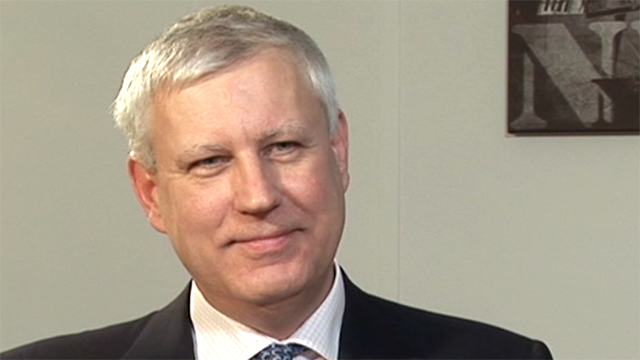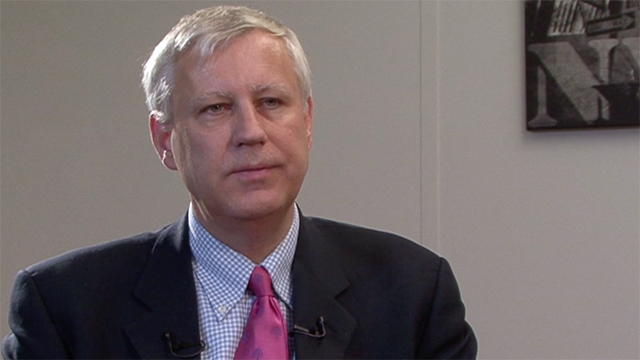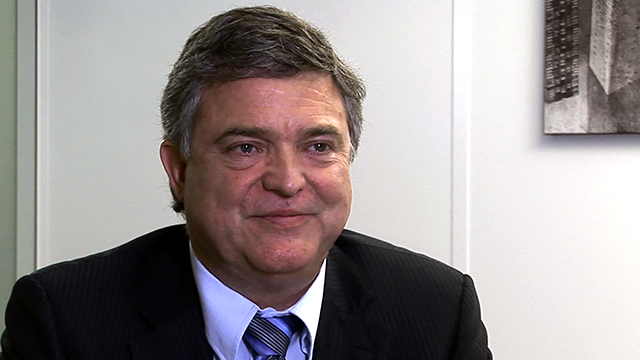EuroBusiness Media (EBM): Theolia, one of Europe's leading producers of electricity from renewable energies, reports earnings for the first-half. Jean-Marie Santander, welcome. You are the founder and CEO of Theolia. Before we begin, how would you describe Theolia in a few words, for those who are not yet familiar with the company?
Jean-Marie Santander (JMS): Theolia makes electricity from windmill energy -- more generally from renewable energy -- but we are specialized in the production of electricity from windmill power. Today, our ‘core’ business, as we say, is the production of electricity from wind turbines. Theolia was created in France, and we developed in the neighbouring countries. Today we are present in about 10 countries, roughly 700 megawatts are in production, and we have a relatively ambitious business plan.
EBM: As your report first-half earnings today, what are your comments on the company's performance?
JMS: Well, the company will witness in the first-half, and more generally during the rest of the year, the outcome of the strategy that was implemented. We will see a strong increase in EBITDA, essentially due to the production of electricity for our own account. When we build windmill power plants – for example, at the end of last year we built many windmill farms that produced energy this year -- and so this year we witness a strong increase in EBITDA, an increase in sales of about 20%, but more importantly we will tell the market we will significantly increase our forecast for our installed megawatt capacity at the end of 2009, and we will reach our target of 2000 megawatts in 2011.
EBM: What is the outlook for your third-party business? Are you planning to stop that activity entirely?
JMS: When we acquired Natenco, which is one of the leading German developers, we kept Natenco’s original business in the first year, which is selling to third-parties. We did not have enough cash when we bought Natenco in order to keep all the megawatts. Since then, things have changed – we raised 240 million Euros last year by issuing a convertible bond – and in Germany there have been regulatory price evolutions which made us consider the possibility of keeping all the megawatts rather than selling them. Therefore, for 2008, given the fact that we made some significant acquisitions and important developments before the regulatory price changes were reported, we will keep these megawatts in Germany, and we will try to do the same in the coming years, at least until 2011.
EBM: As a consequence of your decision to keep more MW for yourself, you will have greater need for capital. How do you plan to ensure your financial needs?
JMS: Today, as of June 30, Theolia has 165 million Euros -- so we have cash available, which is interesting. At the same time, we saw that our main shareholders were in favour of our change of strategy because, at the board meeting, the two representatives of GE Energy Financial Services voted without hesitation in favour of our change of strategy. So we are completely confident in our shareholders’ ability to accompany this change of strategy and our growth.
EBM: What is your update today on your acquisition plans, and what is your strategy regarding external growth? Can we expect to see a deal before the end of this year?
JMS: Theolia was made in 4 years. The cycle for a wind energy plant is 3 to 4 years. If we had only relied on organic growth, today we would only have a few megawatts running. So we decided to proceed differently, we decided to make a significant acquisition each year. So, in 2005 we bought Ventura, which is the leading French developer. In 2006, we acquired Natenco, which is surely a leading German developer. In 2007, bought Maestrale Green Energy, which is one of the leading Italian developers and I think we will continue at this cruising speed.
EBM: The renewable energy market is indeed so much in fashion today that there are bottlenecks at level of the turbine suppliers, who are saturated by demand. Your supply of wind turbines does not appear to be secure -- is this potentially an area of concern?
JMS: It’s not at all a matter for concern. If Theolia was able to grow for the last 4 years, it’s because Theolia was able to implement a turbine management policy which allowed it to grow. The facts demonstrate it: we have about 700 megawatts running, so that’s 700 megawatts of turbines. Furthermore, we have signed different agreements with different suppliers. The first agreement was a global agreement covering six different suppliers. Furthermore, we have signed two MOU’s with a first rate German supplier named Siemens: a first MOU relating to the Tarfaya bid in Morocco, allowing us to already reserve 300 megawatts, provided of course that we pay a deposit and fulfil a few other formalities. But in case we were not selected in the Tarfaya bid, we would have the option to use the turbines at our discretion, elsewhere than at Tarfaya, elsewhere than in Morocco. We have also signed an MOU which will become an agreement for about 300 megawatts by 2012. So today, contrary to what happened in other years, we have secured about 1000 megawatts – a bit more than 1000 megawatts – which is of course huge for Theolia.
EBM: Could you please update us today about your capacity targets, and give us the latest figures concerning your project pipeline?
JMS: Today Theolia is roughly 660 megawatts – let’s say between 660 and 700 because there are fams going online regularly. These are not huge farms; they range from 2 to 12 megawatts, so this capacity is currently being built. We have about 500 megawatts – 474 to be precise – which will start running by 2009, so that’s a bit more than 1100 megawatts. Between now and the end of 2009, that’s 18 months – 6 months this year and 12 months next year – so we think we will start running more megawatts. All of these figures, plus the securing of the turbines, plus the capital at our disposal, reassure us and make us confident about the possibility of reaching 2000 megawatts for 2011, as we announced to the market over 2 years ago.
EBM: Lastly, in your press release, you've announced your decision to reinforce the management team. Could you comment on this decision, and explain why you would like to do this now?
JMS: 4 years ago, Theolia was just 5 or 6 companies. When we closed our accounts on June 30, it’s over 120 companies. So you can imagine the amount of work at the operational level, and the work involved in managing 120 companies. It’s not going to stop either. We create a company for each windmill farm, so you can imagine the work this will create. I’ve realized that recently my involvement in operational matters was making me less effective in terms of strategy, in terms of M&A, growth, acquisitions. Therefore, I proposed to the board to separate the functions of Chairman and CEO, and that we should seek out a CEO to come back me up on the whole operational side. At the same time, we’ve already hired two top managers, one as CFO and the other as COO.
EBM: Jean-Marie Santander, President of Theolia, thank you very much.




